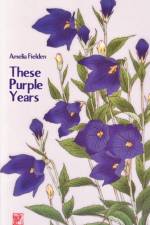av Amelia Fielden
267
It was during the Sui Dynasty (AD 581-601) that China first introduced tea to Japan, but the gentle art of tea drinking did not fully take root until the Southern Song Dynasty (AD 1127-1279) when a Japanese monk called Eisai returned from the Zhejiang Province, bringing with him the seeds for the first plantations and the principles of the Tea Culture. Eisai's book on the subject, Kissa Y¿j¿ki, began with the sentence 'Tea is the ultimate mental and medical remedy and has the ability to make one's life more full and complete.' Building on another ancient tradition, utamonogatari (poem stories), Amelia Fielden brings us Mint Tea from a Copper Pot & other tanka tales. Coming from 'a nation of tea-drinkers', I do not underestimate the significance of this everyday tradition. A cup of tea is curative, calming, ceremonial. For many of us, it is almost an act of ritual. It can be solitary, meditative, but like a memory, allowed to steep a while, it is made for sharing. It is comfort in a crisis, or while we wait for news. In her tanka tales, Amelia Fielden invites us to partake of these recollections of a long life, well-lived, a life filled with love, loss and longing; whether we are sipping Ceylon tea from porcelain cups in Japan, orange pekoe from the best china in an English country garden, mint tea behind wrought-iron gates and bolted cedar doors in the midst of a Moroccan revolution, or green tea in a temple precinct as we contemplate a dancing black butterfly, we are fully involved in Amelia's experience. Moreover, the eponymous mint tea from a copper pot is the image that permeates the collection and lingers long after it is finished. Mint: sharp, tantalising, refreshing, so exciting to the palate. Copper: the metal that redoubles the richness of a flame's reflection. The poet's mind is a fire bowl for memory, the 'sunset fire' that 'flares above the charcoal mountain rims'. This is a collection to savour and to return to again and again.Claire Everett, Tanka Prose Editor, Haibun Today, Editor, Skylark Tanka Journal





